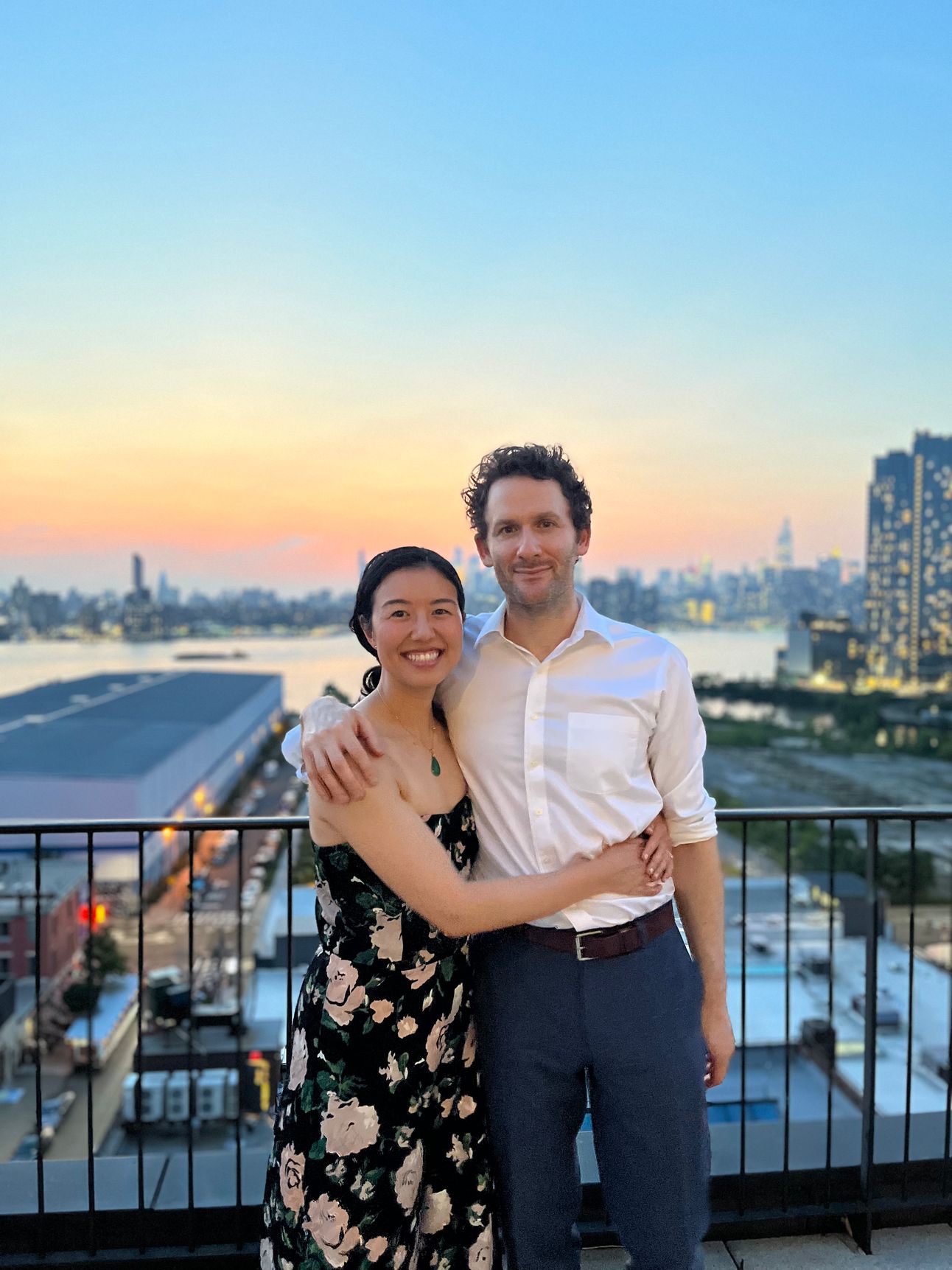“I shouldn’t have to ask” is a myth that holds us back from getting what we want.
I’ll give you an example
I was about to give my daughter her first bite of solid food. Surrounded by other people at the table I thought, “I want to capture this, but I can’t video and feed her at the same time. Someone will surely take a video. I don’t have to ask. I mean, it’s such an important milestone.”
So, I fed her some mashed avocado. She shuddered. It was a hilarious and precious response. I turned to the other people at the table and asked if anyone captured the moment. No one had.
I was crushed. And the obvious question is, why didn’t I just ask someone to film if I wanted the video so badly? If I take a moment to slow down and reflect honestly, what actually happened is after I realized it was going to be tricky for me to film and feed at the same time, the thought did cross my mind to ask someone to film, but then the inner critic paid a visit:
I don’t want to seem like that parent who is obsessed with capturing every moment on video. I want to be seen as the parent in the moment versus the person recording the moment.
And yet, I totally wanted the recorded moment. And so rather than simply asking, “hey can someone video this?” and being done with it. I, instead, missed the recording opportunity and then directed my frustration at my husband (as one of the people around the table) for not doing the thing I didn’t ask for. Which brings me to our main point of today:
How often do we get mad at people for not doing the thing we didn’t ask for?
You didn’t give me the promotion I didn’t ask for.
You didn’t put me on the project I didn’t ask to be put on.
You didn’t change the behavior I didn’t ask you to change.
Because what’s the story we tell ourselves? “I shouldn’t have to ask. Isn’t it so obvious?”
It isn’t. It may be obvious to you. But other people aren’t you. Other people might not be thinking about what you want. Even if they were, they might not want what you want, so they may be way off if they tried to guess.
What I have found is hiding behind this “I shouldn’t have to ask” indignance is actually a more vulnerable story that might sound like:
I don’t want to come off as greedy, selfish, entitled, over-eager, not present (in my case)... the list of unflattering character traits goes on…
This is the inner critic trying to save us from damaging our relationships. Because we’re social creatures and back in the day if we harmed our social relationships we were doomed. But we have to remember to see our inner critic for what it is. A well-intentioned, but extraordinarily clumsy protector. It’s trying to help, but stifles our growth and getting what we want in the process.
Here’s another story: “If I have to ask then I must not be doing well enough to deserve it.”
The implied ending to that sentence is “...and I’ll be told No.” A classic case of pre-negotiating with ourselves. We rob ourselves of the chance to be told No by others because we’ve already said it to ourselves. In this case our inner critic tries to save us from our own negative feelings about being told No. Because we make up some tale about what being told No would mean. We make No a lot bigger than it needs to be when we see No as a door slammed in our face rather than a window into what our teammates care about.
One more story for you
Asking for what we want is vulnerable because we reveal what’s important to us in the process. We can fear sharing what we want most and being judged for it. So, our inner critic, clumsily trying to protect us, convinces us to sideways ask for what we want, hoping someone picks up the crumb clues. The result is these “couldn’t you tell?” stories:
Couldn’t you tell in my email to Finance that I cc’d you on that I was stressed and needed your help?
Couldn’t you tell by my consistent asking how else I can contribute that I wanted a promotion?
No, and no. Because we can’t read each other’s minds.
What actually damages a relationship isn’t asking for what we want. What actually damages the relationship is the resentment that brews after not getting what we didn’t ask for. The story of “I shouldn’t have to ask” that can really easily lead to the story of “you must not be paying attention”, “you must not care about me” – that’s what poisons a relationship. Because we start acting as if those stories are true when they might not be. Or the story of “If I have to ask, I must not deserve this” that leads to us shrink away from the people we depend on to be successful in our roles. That’s what damages a relationship.
So how do we overcome these myths that hold us back from asking for what we want?
Getting clear on what we want and why we want it in the first place is a great start. What do you want out of:
your next meeting?
your current role?
your relationships with your teammates?
Yourself?
We often don’t take the time to anchor in what we want and why we want it, which makes it easy to get lost, confused, and swept away. If any of these questions brought up a …huh (as in I haven’t thought about in a while or ever) then GREAT. Now is the time. Now’s your chance. Congratulations!
If I had taken time to answer: what do I want out of photos and videos of my daughter and why. I would say I want to cherish these milestones to watch (over and over) and share with her when she’s older. It seems so simple. Knowing my goal now makes asking for what I want easy. And even if someone thought I wasn’t being present (highly unlikely), I would still feel really good about asking for what I wanted anyway.
To start getting clear on what you want, I invite you to freestyle write. Whatever comes to mind in response to the questions I just shared. What do you want out of your next meeting, your current role, your relationships with your teammates? Yourself? The faintest inkling, the fleeting thought (especially those!), it is all worthy of writing down. We have this habit of already being in editing mode before thinking or writing anything! This is another form of pre-negotiation. We’ll do the calculus of oh that’s too much they’ll say no or I’ll come off as FILL IN THE BLANK and not even let our thoughts hit the paper before we axe them. So just practice the skill of letting what is inside out. You will strike gold somewhere in there. I would love to hear how it goes. Thanks for tuning in. I’ll see you next month.
The Goings On

I’m on the other side of seven workshops, two weddings, and summer covid over the last month and have learned a lot about capacity – my own and the people I get to work with. We often move so fast during our day to day that we don’t give ourselves the opportunity to reflect and grow. Coaching can be that precious space to discover how to make new choices. I was, once again, astounded by workshop participants who showed up with openness and curiosity.
Over the course of these workshops, a mindset shift turned a tough conversation into a partnership conversation. An exercise in identifying our stakeholders reminded us that, yes, our internal stakeholders are stakeholders too. Naming our inner critics allowed us to tell them to scoot over – they don’t get to drive. I am feeling proud of all the people who made space to try on a new mindset or a new skillset and continue to expand their range.
____________________________________
Want to learn more about how I help hungry leaders quiet their inner critic, discover what they want, and ask for it? Hit reply and let’s chat!
Jennifer Ouyang Altman is the CEO and Founder of Inner Radio and communication and leadership course facilitator at Stanford Graduate School of Business.

